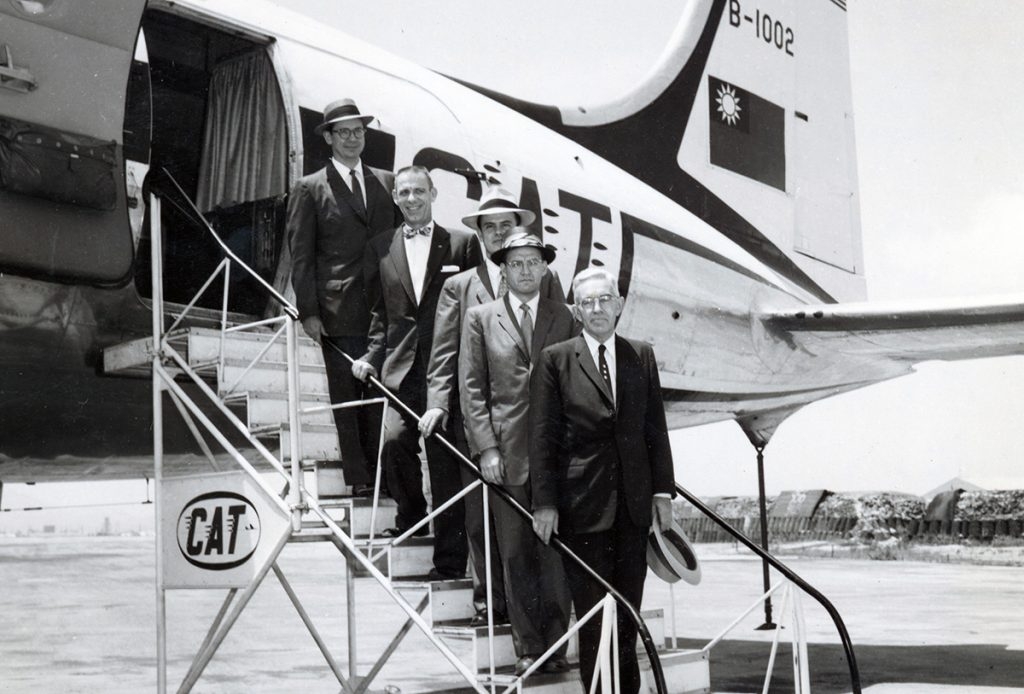News
KUBS News
“The Washington University Project,” A 60-year History of the Introduction of Modern Business Admini
2017.06.19 Views 3942 경영대학
“The Washington University Project,” A 60-year History of the Introduction of Modern Business Administration
Korea University and Washington University in St. Louis…The 60-year anniversary of the business education technical assistance agreement
Korea University and Washington University in St. Louis…The 60-year anniversary of the business education technical assistance agreement
Korea University (KU) and Washington University in St. Louis (WUSTL) celebrated 60 years of their partnership. The beginning of the “Washington University Project” dates back to 1957. After the signing of the armistice agreement, the United States proposed a measure to provide technical education assistance focused on private universities including KU (then-President Jin-Oh Yoo) and Yonsei University (then-President Nak Jun Baek). In 1955, as the technical assistance for business education was being reviewed in earnest, the foundation for the “Washing University Project” was established.

Five WUSTL professors arrive in Korea in 1958. From left to right: Merle T. Welshans, Charles L. Lapp, Powell Niland, Sterling H. Schoen, L. J. Buchan (Photo provided by WUSTL)
The objective of diplomatic relations between the two universities was “the introduction of modern business administration.” Korea, at the time, was in desperate need of reconstructing its economy through business education as it had been destroyed by the Korean War. Ross M. Trump, then dean of WUSTL’s business school, visited KU on November 17, 1957. The purpose of his visit was to examine Korea’s business management level and to see whether Korea was able to incorporate modern business administration. In December that year, Dean Trump signed a contract between the U.S. Department of State and the two Korean universities in order to assist business education. Finally, in February of 1958, the Washington University Project was launched.
From 1958 to 1946, professors from the Washing University’s Olin Business School (Olin) were sent to Seoul. They were responsible for △counselling educators, △demonstrating new education styles, △creating curriculum, and △building a business library.
Several professors from Korea University’s College of Commerce were also sent to WUSTL. △Soon-Shik Kim, △Haeng-Kwon Kim, △Hyo-Rok Kim, △Chang-Hwan Sung, △Se-Hwan Yoo, △Byung-Wook Yoon, △Joon-Beom Lee, △Soo-Young Jeong, △Ku-Yeon Cho, and △Ik-Soon Cho (in the order of the Korean alphabet) took part in business classes and received MBA or doctorate degrees at WUSTL.
“This project was one of the most honorable achievements in Olin’s history,” said Professor Bob Virgil, who was in charge of operating the program at the time. “In fact, it was the most significant achievements in all of WUSTL’s history.”
The visit to WUSTL by KU professors was effective as it led to a reorganization of curriculum, the establishment of an evening graduate school program, and the publication of a business newspaper. KU played a vital role in providing business administration education to universities in Korea by developing courses, improving teaching methods, and publishing business administration teaching resources. Although the College of Commerce was already four years ahead of Yonsei University in setting up a department of business administration in April 1955 and recruiting new students to provide business education, the education content and environment gap between the two universities grew even further due to the introduction of the Washington University Project.
In particular, the establishment of the Institute for Business Research and Education (IBRE) and the Graduate School of Business Administration is evaluated as having played a critical role in providing business theories and practical education to industries in Korea. Faculty of the College of Commerce took part in IBRE and gave consultations to government agencies, public enterprises, and private companies. WUSTL has also sent exchange professors to provide education aid to IBRE. The Graduate School of Business Administration, which educates middle-level executives, brought direct transformation to university-level business education content.
From 1958 to 1946, professors from the Washing University’s Olin Business School (Olin) were sent to Seoul. They were responsible for △counselling educators, △demonstrating new education styles, △creating curriculum, and △building a business library.
Several professors from Korea University’s College of Commerce were also sent to WUSTL. △Soon-Shik Kim, △Haeng-Kwon Kim, △Hyo-Rok Kim, △Chang-Hwan Sung, △Se-Hwan Yoo, △Byung-Wook Yoon, △Joon-Beom Lee, △Soo-Young Jeong, △Ku-Yeon Cho, and △Ik-Soon Cho (in the order of the Korean alphabet) took part in business classes and received MBA or doctorate degrees at WUSTL.
“This project was one of the most honorable achievements in Olin’s history,” said Professor Bob Virgil, who was in charge of operating the program at the time. “In fact, it was the most significant achievements in all of WUSTL’s history.”
The visit to WUSTL by KU professors was effective as it led to a reorganization of curriculum, the establishment of an evening graduate school program, and the publication of a business newspaper. KU played a vital role in providing business administration education to universities in Korea by developing courses, improving teaching methods, and publishing business administration teaching resources. Although the College of Commerce was already four years ahead of Yonsei University in setting up a department of business administration in April 1955 and recruiting new students to provide business education, the education content and environment gap between the two universities grew even further due to the introduction of the Washington University Project.
In particular, the establishment of the Institute for Business Research and Education (IBRE) and the Graduate School of Business Administration is evaluated as having played a critical role in providing business theories and practical education to industries in Korea. Faculty of the College of Commerce took part in IBRE and gave consultations to government agencies, public enterprises, and private companies. WUSTL has also sent exchange professors to provide education aid to IBRE. The Graduate School of Business Administration, which educates middle-level executives, brought direct transformation to university-level business education content.
Related Article


